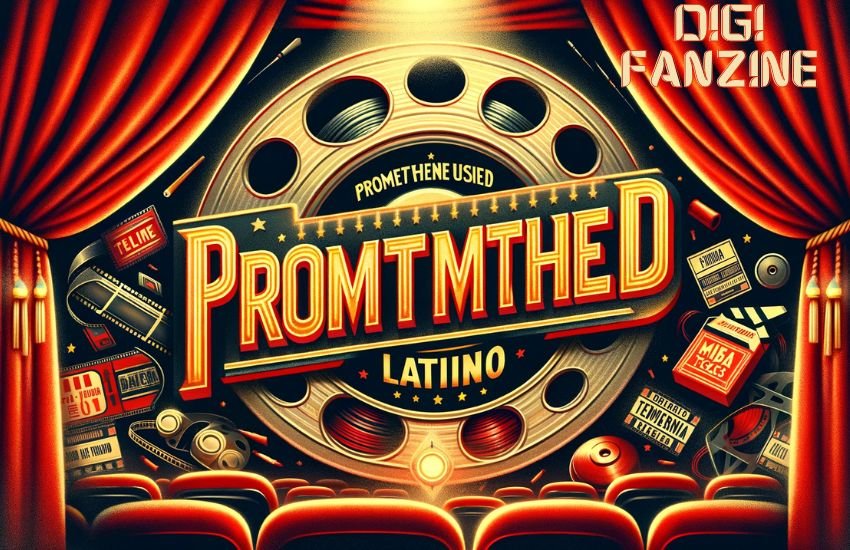Prometheusedtendida Latino is a term that intriguingly blends elements from Greek mythology with Latin American cultural themes. The figure of Prometheus, a titan in Greek mythology known for stealing fire from the gods and giving it to humanity, symbolizes enlightenment, rebellion, and sacrifice. When combined with the term “Latino,” this concept can be interpreted as the embodiment of the Latin American struggle for knowledge, empowerment, and cultural identity. This article will delve into the various aspects of Prometheusedtendida Latino, exploring its cultural resonance and significance.
The Myth of Prometheus and Its Symbolism
Prometheus, one of the Titans in Greek mythology, is best known for his defiance against Zeus, the king of the gods. He stole fire from Mount Olympus and gave it to humanity, an act that enabled civilization’s progress. For his rebellion, Prometheus was punished by being chained to a rock where an eagle would eat his liver daily, only for it to regenerate each night. This myth symbolizes the quest for knowledge, the spirit of rebellion, and the price of enlightenment.
In the context of Prometheusedtendida Latino, Prometheus can be seen as a metaphor for the enduring struggles and aspirations of Latin American people. The act of stealing fire represents the pursuit of education, cultural pride, and liberation from oppressive forces.
Cultural Significance of Prometheusedtendida Latino
Latin America has a rich and complex history marked by colonialism, resistance, and the fight for independence. The concept of Prometheusedtendida Latino resonates deeply with the region’s historical and cultural narrative. It embodies the spirit of resistance, the quest for knowledge, and the drive for social justice.
The blending of Prometheus with Latin American culture signifies the merging of ancient mythological ideals with contemporary issues. This fusion highlights the ongoing struggle for empowerment and the importance of education and enlightenment in achieving societal progress.
Prominent Figures Representing Prometheusedtendida Latino
While there may not be specific individuals directly associated with the term Prometheusedtendida Latino, many Latin American figures embody its spirit. Here are a few notable personalities:
Simón Bolívar:
Known as “The Liberator,” Bolívar played a crucial role in Latin America’s fight for independence from Spanish rule. His efforts to liberate several South American countries resonate with the Promethean spirit of rebellion and sacrifice.
Gabriel García Márquez:
The Nobel Prize-winning author is renowned for his works that delve into the human condition and societal issues. His novels often reflect the themes of struggle and enlightenment, akin to the Promethean narrative.
Frida Kahlo:
The iconic Mexican artist used her art to explore personal and cultural identity, pain, and resilience. Kahlo’s work embodies the Prometheusedtendida Latino spirit through its defiance of conventional norms and its celebration of cultural pride.
Prometheusedtendida Latino in Modern Context
In today’s Latin America, the spirit of Prometheusedtendida Latino continues to thrive in various social movements and cultural expressions. Activists advocating for human rights, environmental justice, and educational reform embody the Promethean spirit of challenging the status quo and seeking enlightenment.
The rise of digital media has also played a significant role in spreading knowledge and empowering communities. Social media platforms and online educational resources have become modern-day “fires” that enlighten and empower Latin American societies.
Media Representation of Prometheusedtendida Latino
The concept of Prometheusedtendida Latino can be seen in modern Latin American cinema, literature, and music. Films that explore themes of resistance, enlightenment, and cultural identity often reflect this spirit. For instance:
“Motorcycle Diaries”:
This film about Che Guevara’s early life highlights the transformative journey of a young man who would become a revolutionary icon. The themes of self-discovery and social justice align with the Promethean spirit.
“City of God”:
Set in the favelas of Rio de Janeiro, this film portrays the harsh realities of life in marginalized communities. The characters’ struggles for a better life echo the quest for enlightenment and liberation.
Challenges and Controversies Surrounding Prometheusedtendida Latino
The adoption of mythological symbols in contemporary culture can lead to various interpretations and controversies. Some might argue that linking Prometheus to Latin American identity oversimplifies complex historical and social issues. Others may see it as a powerful metaphor for ongoing struggles and aspirations.
Critics might contend that the Prometheusedtendida Latino concept could risk romanticizing rebellion and suffering without addressing the root causes of social inequalities. However, supporters argue that it serves as an inspiring narrative that highlights the importance of resilience, knowledge, and cultural pride.
The Future of Prometheusedtendida Latino
Prometheusedtendida Latino is a multifaceted concept that symbolizes the enduring quest for knowledge, freedom, and cultural identity within Latin America. As this idea continues to evolve, it will likely inspire future generations in their pursuit of enlightenment and justice.
The spirit of Prometheus, with its emphasis on enlightenment and defiance, resonates deeply within the Latin American context. It serves as a powerful reminder of the importance of education, cultural pride, and the ongoing fight for social justice. As Latin America continues to navigate its complex historical and cultural landscape, the concept of Prometheusedtendida Latino will remain a vital and inspiring narrative.
Conclusion
In summary, Prometheusedtendida Latino encapsulates the rich cultural heritage and the relentless pursuit of progress that define Latin America. It is a testament to the power of myth and culture in shaping societal values and aspirations. As we look to the future, the legacy of Prometheus and the cultural identity of Latin America will undoubtedly continue to inspire and empower communities across the region.
